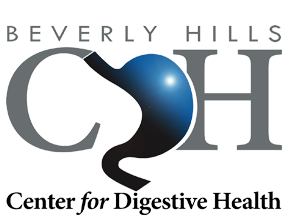What Are Peptic Ulcers?
BOOK APPOINTMENTMany people believe that ulcers are a side effect of being stressed. While stress can be a cause of these painful sores in the esophagus, stomach, and small intestine, it is not the only cause of the problem. The sores occur when stomach acid comes in contact with a digestive organ. Powerful enough to break down food, this acid can cause severe damage to the lining of your digestive tract.
How stomach acid is allowed to come into contact is less straightforward. A number of different causes include medications such as aspirin or NSAIDs, alcohol, smoking, radiation therapy, the bacterium called Helicobacter pylori (H. pylori), or, yes, stress. Anything that weakens your body’s defenses can lead to developing an ulcer. Even food that has not been fully digested passing through your body can cause trouble.
People suffering from acid reflux disease or GERD often exhibit similar symptoms to those of someone suffering with a peptic ulcer. The only way to diagnose the problem for sure is with an upper endoscopy and radiographs. Some people never experience symptoms, but those who do may experience a burning sensation, nausea, and loss of appetite. In more severe cases, weight loss, vomiting, and bleeding can occur.
With proper treatment, peptic ulcers resolve themselves within months, and effective treatments have greatly advanced in the past 20 years. Mild ulcers can be curbed with antacids or acid blockers, while moderate or severe cases may require a combination of medications. Antibiotics and proton pump inhibitors to decrease the levels of stomach acid produced work together to curb the damage caused by this disease.
If you think you have a peptic ulcer, talk to Dr. Davidson about your symptoms and make an appointment for an examination. Remember, only a doctor can diagnose this disease, or determine if you have some other issue.
Our Blogs
If Something Does Not Feel Right, It May Be Time to Get Answers
Ongoing bloating, constipation, rectal discomfort, or reflux should not be ignored. These symptoms may point to conditions that benefit from proper evaluation and care. We treat concerns such as constipation, hemorrhoids, fecal incontinence, and pelvic floor...
From Evaluation to Treatment: Looking Ahead to Your GI Visit
Digestive health concerns can affect your comfort, confidence, and daily life. At BH Center for Digestive Health, we provide a full range of gastrointestinal services to help identify, manage, and treat GI conditions with care and clarity. From colonoscopy and EGD to...
Wishing You a Happy 2026 New Year from Dr. Davidson and Team!
✨ Welcome, 2026! ✨ A new year brings fresh beginnings, renewed focus, and a chance to put your health first. As we step into 2026, let this be the year you listen to your body, prioritize your digestive wellness, and choose care you can trust. At BH Center for...
Call to Schedule
Our office is available to answer your questions and evaluate your symptoms.

Phone
(310) 855-0222
Fax: (949) 404-6467
Hours
Mon - Fri: 9am – 5pm
Sat - Sun: Closed